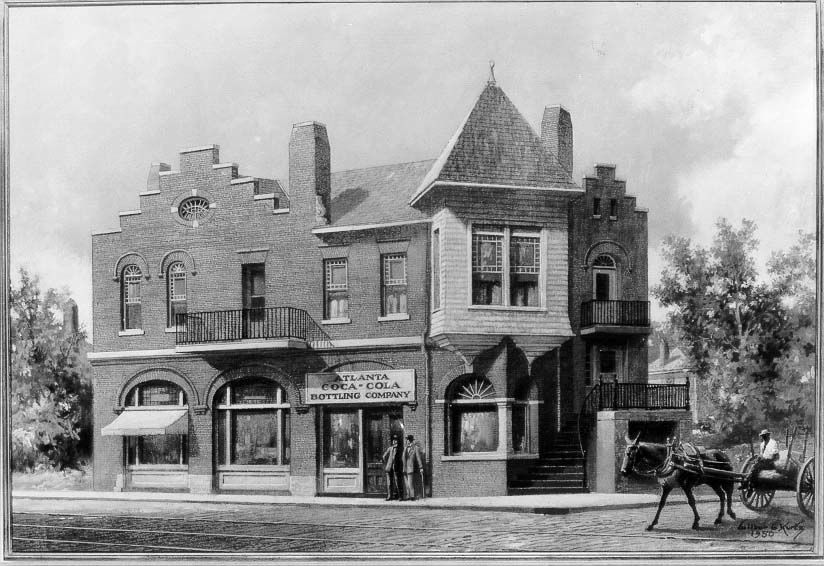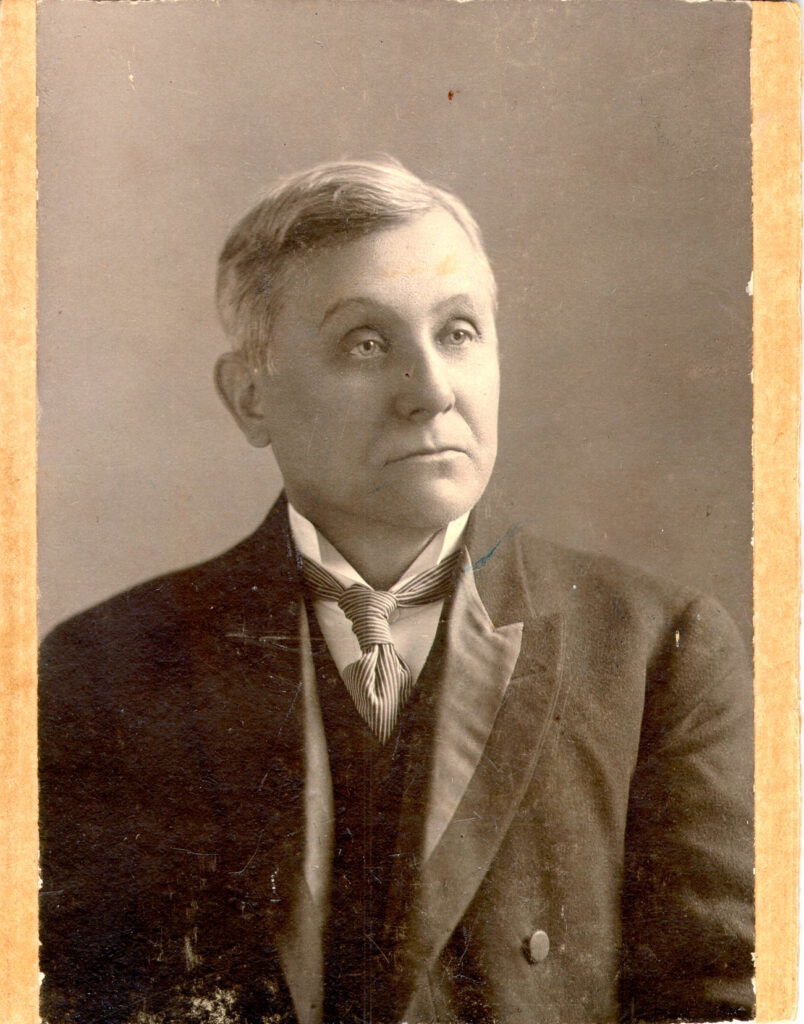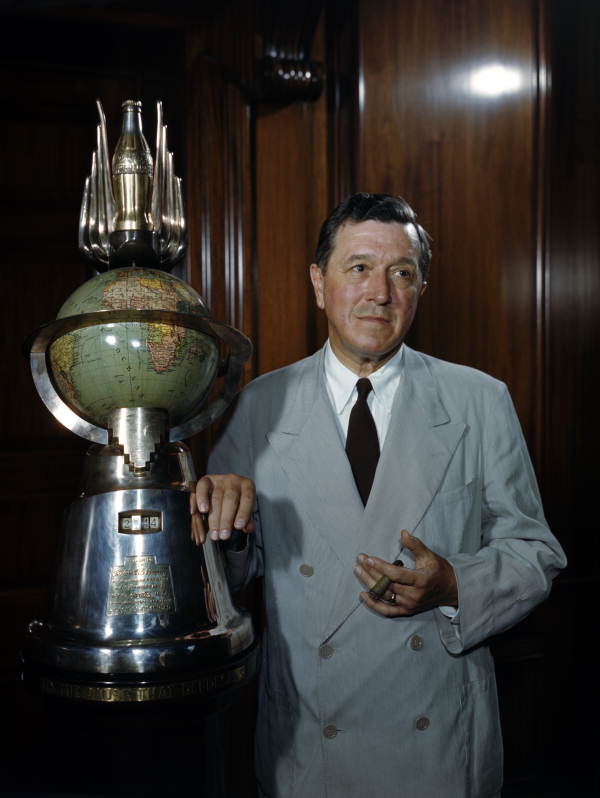For much of its history, the Atlanta-based Coca-Cola Company and its corporate leadership and regional bottling franchises have offered broad support to charitable causes in the state.
Emory University was an early beneficiary of Coca-Cola philanthropy through the Candler family, which owned the company until 1919. Coca-Cola’s philanthropy has also extended through its bottlers since 1900. Although the bottlers are independent operating concerns organized by region, they are an important part of the corporate “Coke family” and have carved out a philanthropic tradition that emphasizes locally based giving. Robert Woodruff, named president of the Coca-Cola Company in 1923, was a powerful force behind the company’s transformation into a worldwide enterprise. Until his death in 1985, Woodruff and his family came to personify the company’s philanthropy and civic-mindedness.
After Woodruff’s death, the Coca-Cola Company’s philanthropy in the United States took the form of three sponsored giving programs, each with an educational focus. At the international level, the company established in 2001 the Coca-Cola Africa Foundation, which emphasizes health, education, and the environment. Subsequently, the company created foundations in Great Britain and Australia that emphasize youth development.
The Legacy of Georgia’s Bottlers
As Coke’s fortunes rose in the twentieth century, so did those of its bottlers. The roots of the current bottling system may be traced to 1899, when Joseph Brown Whitehead and a business associate purchased from the Coca-Cola Company the exclusive right to bottle the beverage in the United States (excepting Mississippi). In 1900 the Whitehead family moved from Tennessee to Atlanta to develop the Dixie Coca-Cola Bottling Company, whose region included the South, Southwest, and Midwest.

Courtesy of National Register of Historic Places
The Whitehead family gave generously to social service, religious, and educational organizations in Atlanta and elsewhere in the state. Family members established three Georgia-based philanthropies whose purposes reflected these priorities: the Lettie Pate Whitehead Foundation, the Joseph B. Whitehead Foundation, and the Lettie Pate Evans Foundation. Beneficiaries include Agnes Scott College, the Berry Schools, Children’s Healthcare of Atlanta, Emory University, the Georgia Institute of Technology, Tallulah Falls School, and others. Each of the Woodruff funds shares in a common administrative agreement with the Woodruff Foundation.

Courtesy of Stuart A. Rose Manuscript, Archives, and Rare Book Library, Emory University.
Georgia’s local bottlers adopted “Your Friendly Neighbor” as their motto, both as a marketing strategy and as a reflection of commitment to their home communities. Bottlers included the Barron family of Rome, the Cobb family of LaGrange and West Point, the Haley family of Albany, the Montgomery family of Atlanta, the Roberts family of Columbus, and the Sams family of Athens. These families have contributed to dozens of educational institutions and charitable organizations in their communities and around the state.
The Woodruff Legacy
In 1937 Woodruff created the Trebor Foundation and focused its giving on charitable causes within the state. (The foundation’s name, “Robert” spelled backward, reflected Woodruff’s preference for anonymous giving.) After Woodruff died, the trustees changed the name to the Robert W. Woodruff Foundation.
Woodruff’s generosity changed the face of Atlanta, inaugurating a new era in the city’s history. Beneficiaries include the Woodruff Arts Center, created in the aftermath of the disastrous Orly air crash of 1962, Emory University School of Medicine and the component programs that make up the Woodruff Health Sciences Center, the Centers for Disease Control and Prevention, and CARE. In 1979 Woodruff and his brother, George, donated $105 million to Emory, at that time the largest single gift ever made to a U.S. institution of higher education. This gift, combined with the leadership of Emory’s president James T. Laney, transformed Emory into a national institution of academic distinction.

Image from oaktree_b
Roberto Goizueta succeeded Woodruff at Coke and continued his predecessor’s legacy of philanthropy. In 1992 he created a foundation, the Goizueta Foundation, to provide grant support to educational and charitable organizations. Goizueta had been on Emory’s Board of Trustees since 1980, and the Roberto C. Goizueta Business School, completed just before his death in 1997, was named for him.
Coca-Cola Foundation: The Modern Era
The Coca-Cola Company created the Coca-Cola Foundation in 1984. Housed at the company’s headquarters in Atlanta, the foundation adopted an exclusive education focus in 1989 that continues to guide its giving. The foundation makes grants to nonprofit organizations in the United States and around the world.
The foundation’s overarching interest is education at all levels. Its grantmaking supports classroom teaching and learning, scholarships for promising students, and global initiatives that foster educational and cultural exchange.
At the end of 2003, the foundation listed assets of more than $27 million, with total giving of $18.5 million for 122 grants (the largest being $2 million and the smallest $2,000). Between 1995 and 2000 the foundation distributed $124 million in support of educational initiatives. In terms of total giving, the Coca-Cola Company Foundation in 2005 ranked forty-fourth among the top corporate givers in the United States. Of the top fifty U.S. foundations awarding grants in Georgia in 2003, the foundation ranked eleventh.
Coca-Cola Scholars Foundation
As a tribute to its legacy of civic service, the Coca-Cola Company created the Scholars Foundation in 1986 to mark its 100th anniversary. Located at the company’s headquarters, the scholarship fund is a competitive national program for college-bound students who, in their high school years, demonstrate superior academic achievement, as well as leadership and community service. These criteria reflect the Coca-Cola Company’s desire to support the educational goals of young people who are most likely to “make a difference in the world.” Each scholarship award is made for a two- or four-year term; funds are available for the recipient’s chosen course of study in an accredited postsecondary institution. In recent years the application process has been opened nationwide to all high school seniors and students attending two-year institutions.
The Coca-Cola Scholars Foundation is among the largest business-supported scholarship programs of its kind. At the end of 2004, the foundation’s assets were just over $44 million; that year it awarded nearly $2.8 million in grants to individuals. Since its founding, the Coca-Cola Scholars Foundation has awarded nearly $27 million in scholarship funds to approximately 3,250 high school seniors. The recipients come from all fifty states, and more than one-third are minorities.
Coca-Cola Company Contributions Program
Housed in the Coca-Cola Company’s corporate headquarters in Atlanta, the Contributions Program was established to complement the Coca-Cola Company’s corporate foundation. All grants are made directly by the Coca-Cola Company and support nonprofit organizations that serve youth, promote education, and encourage a healthy and active lifestyle. Grants are made nationally and internationally for curriculum development, donated equipment and products, sponsorships, and as matching funds for employee gifts. At the end of 2003, the Contributions Program listed $34.7 million in direct grants, $2.3 million in employee matching contributions, and $414,162 for in-kind gifts.

Photograph by David A. Pike
Coca-Cola Enterprises and Bottlers: The Modern Era
Coca-Cola Enterprises (CCE) is a wholly owned bottling subsidiary of the Coca-Cola Company. It was created in 1986 when the Coca-Cola Company purchased its two largest bottlers and formed a single corporation. CCE sponsors a corporate giving program that is administered by the Coca-Cola Company’s Community Affairs Department in Atlanta. Support typically includes employee-matching gifts, employee-related scholarships, and general operating support for local nonprofit organizations. Contributions are limited primarily to the Atlanta area.
CCE also operates the Camp Coca-Cola Foundation, classified in 2001 as a company-sponsored operating foundation. The foundation’s offices are in Atlanta. Additional donors include Coca-Cola North America and the Coca-Cola Bottlers’ Association. The foundation’s purpose is education and youth development and is limited entirely to the operation of a camp program for young people. Giving activities in 2003 exceeded $1.4 million, all for the camp program.
Coca-Cola Bottlers operates the Coca-Cola Bottlers Foundation, Inc. Located in Atlanta, the foundation does not accept applications. Gifts are made to a preselected list of charitable organizations that serve children and youth, higher education, health, and human services. Giving activities for 2003 were $1.7 million for 268 grants (the largest being $350,000 and the smallest $303).































